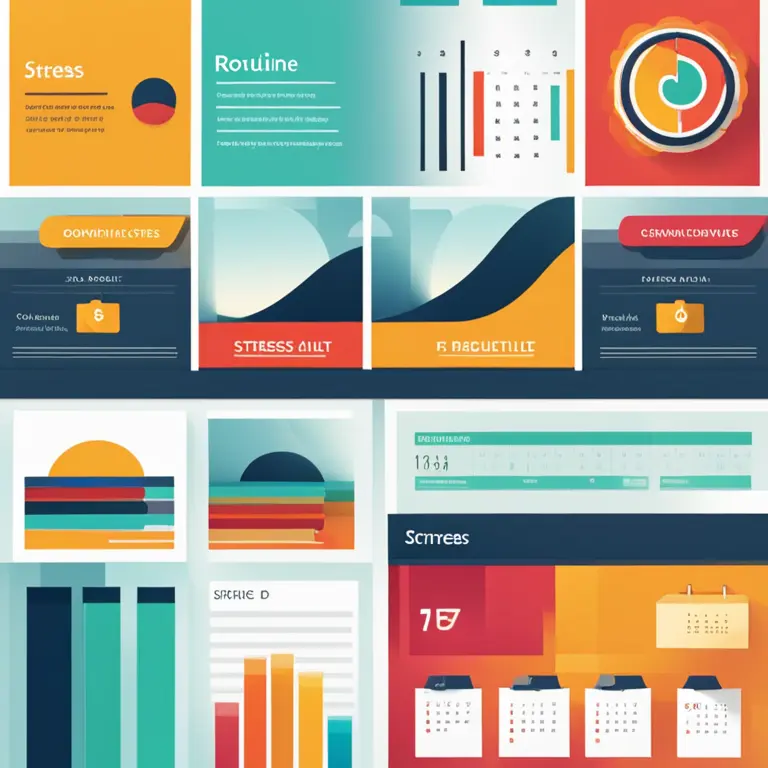
Can Meditation Alleviate Stress? A Comprehensive Review
Discover how meditation can be your ally in battling stress, contributing to mental peace and overall well-being.
article by Hina Kurosawa
Introduction to Meditation and Stress Relief
Modern life brings with it a plethora of challenges that can lead to a heightened stress response. As we sail through the information-saturated ecosystem of 2024 and beyond, meditation emerges as a natural ally in promoting mental health. This ancient practice, which has stood the test of time, offers a serene retreat from the chaotic stimuli of the everyday world. Across cultures, meditation is recognized for its soothing impact on the mind and body, helping to evoke a state of relaxation that can alleviate stress-related symptoms. With growing research supporting its benefits, meditation is becoming an integral part of stress management strategies.

The Science Behind Meditation's Stress-Reducing Power
Meditation calms the brain's stress response system by triggering the body's relaxation response. This process decreases the production of stress hormones like cortisol, leading to a reduction in the symptoms associated with anxiety and stress. The practice has also been linked to changes in brain structure, specifically in areas related to attention, self-awareness, and emotional regulation. Neuroscientific studies in 2024 continue to support these findings, showcasing meditation as a tool to reshape our neural pathways and foster a state of inner tranquility.

Meditation Techniques for Stress Management
A variety of meditation techniques can be employed to combat stress. Mindfulness meditation encourages practitioners to observe their thoughts and feelings without judgment, fostering a sense of calm. Guided imagery involves visualizing a relaxing scene to divert the mind from stressors. Progressive muscle relaxation focuses on tensing and then relaxing different muscle groups, promoting a state of physical ease that compliments mental clarity. While each technique has its approach, the core objective remains the same - to guide the mind away from turmoil and towards peace.

Establishing a Meditation Routine for Optimal Benefits
Consistency is key when reaping the stress-relief benefits of meditation. Establishing a daily routine, even if for just a few minutes, can lead to significant improvements in managing stress. Creating a conducive environment for meditation, such as a quiet space with minimal distractions, enhances the quality of the practice. Additionally, leveraging technology like meditation apps with guided sessions can support habit formation, offering accessible methods tailored to individual preferences and needs.

The Role of Meditation in Modern Well-being Practices
In the current era, mental well-being is rightly placed on par with physical health. Both medical professionals and individuals alike are acknowledging the role of meditation in establishing a balanced lifestyle. Workplaces incorporate meditation into their wellness programs to boost employee productivity and mitigate burnout. Educational institutions introduce students to meditation to help them manage academic stress. Clearly, meditation is not merely a personal practice but a societal tool for enhancing collective well-being in an increasingly frenetic world.
Final Thoughts on Meditation as a Stress Reliever
Meditation offers a promising remedy to the epidemic of stress that plagues our modern existence. It empowers individuals to cultivate a sanctuary of peace within, irrespective of external circumstances. With ongoing advancements in our understanding of the mind-body connection, the role of meditation in stress relief is likely to become even more prominent in the years to come. Embracing meditation may very well be one of the most effective decisions one can make for one's mental health today and in the future.
Published: 1/18/2024
Modified: 1/18/2024
More predictions
Come back here soon to learn more about yourself and your future


Meditation's Effect on Blood Pressure
Discover how meditation can contribute to lower blood pressure, offering a serene path to cardiovascular health in this in-depth article.


The World of Meditation: A Peaceful Journey
Delve into the serene world of meditation with this comprehensive guide that illuminates its purpose, practice, and profound benefits.